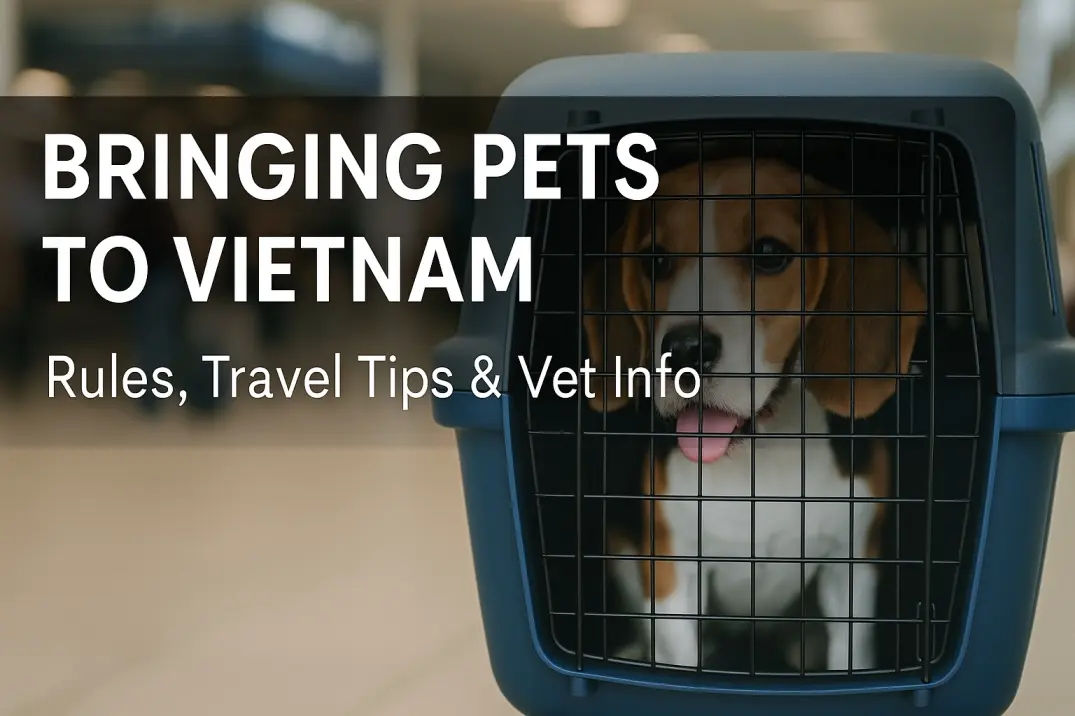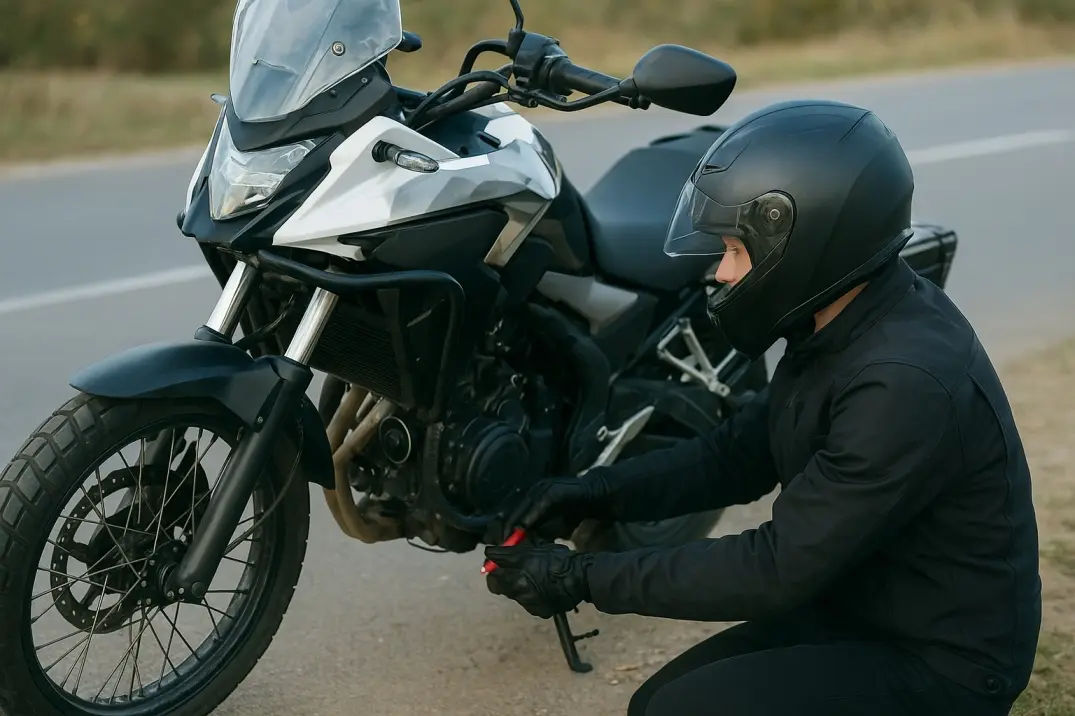
As Vietnam continues to attract expats and long-term visitors, many pet owners choose to bring their furry companions along — especially from the US or Europe. Relocating with pets takes planning, paperwork, and understanding local regulations, but with the right information, it’s completely doable. When we brought our own dog, we quickly realized that knowing the exact Vietnam pet import requirements made the journey stress-free.
Can You Bring Pets to Vietnam?
Yes, you can bring pets to Vietnam, including dogs and cats. However, you must follow specific procedures and requirements. While most breeds are welcome, aggressive breeds and exotic animals may face restrictions or need special permits. Always verify the latest guidelines with the Vietnamese embassy or consulate in your home country before booking flights. During our move, even locals asked about our pup’s papers — so it pays to be prepared.
- Check out Vietnam tours and trips
- How to Secret tips to find cheap flights to Vietnam
Vietnam Pet Travel Requirements
Government Agencies Involved
The Department of Animal Health under the Ministry of Agriculture and Rural Development oversees pet import to Vietnam. They regulate all animal transport in Vietnam, including arrivals at Hanoi’s Noi Bai and Ho Chi Minh City’s Tan Son Nhat airports.
Key Requirements
- Microchipping: Pets must have an ISO 11784/11785 compliant 15-digit microchip.
- Vaccinations: Rabies vaccination is mandatory (administered at least 30 days but within 12 months of travel). Additional vaccines such as distemper, parvovirus, and leptospirosis are recommended for dogs.
- Health Certificate: Issued by a licensed vet within 7–10 days before departure. It confirms your pet is healthy and free from contagious diseases.
- Import Permit: Apply through the Department of Animal Health prior to arrival. While some travelers enter without it, official policy requires it for long-term stays.
Restricted Breeds
There’s no official list of banned breeds, but aggressive dogs like Pit Bulls, Rottweilers, and mastiffs may need extra paperwork or approvals. Before you bring a dog to Vietnam, contact local authorities or your airline to confirm the latest rules.
How to Bring Your Pet to Vietnam: Step-by-Step
Step 1: Begin Early
Start planning 3–6 months in advance to allow time for vaccinations, paperwork, and crate training. Families who delayed this step often faced flight rescheduling or extra fees.
Step 2: Visit the Veterinarian
Update vaccinations and request advice on climate-specific concerns. Depending on your country, a rabies titer test might be necessary. When we prepared our cat, our vet reminded us about Vietnam’s tropical climate — advice that helped a lot.
Step 3: Apply for an Import Permit
Submit your pet’s health certificate, vaccine records, and your travel itinerary to Vietnam’s agricultural authorities. An official Vietnam pet import permit smooths the process and avoids delays at customs.
Step 4: Choose a Pet-Friendly Airline
Select an airline that supports animal transport to Vietnam and complies with local regulations. Begin crate training early to help your pet adjust.
Step 5: Prepare for Arrival
Upon landing at airports like Tan Son Nhat or Noi Bai, present all documentation. Pets typically avoid quarantine if everything is in order. Customs officers may check your pet directly; when we arrived, the inspection took less than 10 minutes.
Vietnam Quarantine Policy for Pets
Pets usually skip quarantine if:
- All documents are accurate and complete.
- Vaccinations are up to date.
- Your pet appears healthy upon inspection.
If papers are missing or the animal looks unwell, the authorities may require observation. This rarely happens when travelers prepare ahead.
Pet Travel Tips
- Book Direct Flights: Reduce stress and travel time by choosing direct routes.
- Skip Sedation: Instead, create a calm space with toys or blankets. Most vets advise against sedation.
- Feed Smart: Provide a light meal a few hours before the flight. Ensure access to water in the crate.
- Mind the Climate: Vietnam’s heat can be harsh. Travel during cooler months if your pet is heat-sensitive.
Living in Vietnam with Pets
Pet Culture and Attitudes
Urban areas increasingly embrace pet ownership. While rural communities may view pets in Vietnam differently, overall attitudes are becoming more compassionate. Be mindful of local customs and practice respectful ownership.
Leash Laws and Stray Animals
Although leash laws exist, enforcement is inconsistent. To keep your pet safe — especially from strays — always use a leash in public and stay alert.
Adapting to Vietnam’s Climate
Tropical conditions can challenge pets from colder climates. Keep them hydrated, groomed, and indoors during hot hours. Air conditioning or fans help maintain comfort.
Community and Support
Expats often connect through Facebook groups and local pet communities. These networks offer advice, vet recommendations, and opportunities to socialize with fellow pet lovers. When we first moved, joining a “Pets in Hanoi” group gave us instant support.
Parks and Pet-Friendly Spaces
Not all parks welcome pets, but some areas in Hanoi and Ho Chi Minh City allow leashed dogs. Pet-friendly cafes and outdoor spots are on the rise, making life easier for both owners and pets.
Veterinary Care and Pet Supplies
Veterinary Clinics
Major cities offer reliable vet care, including check-ups, vaccinations, grooming, and emergency services. Clinics like Saigon Pet Clinic and Animal Doctor International often have English-speaking staff, which makes settling in smoother.
Pet Supplies
Supermarkets and pet stores stock popular brands like Royal Canin and Pedigree. For specialty items, consider bringing supplies or ordering online.
Leaving Vietnam with Your Pet
If you’re relocating again or returning home, you’ll need:
- Updated health certificate
- Current rabies vaccination
- Export permit (if required)
- Approved travel crate
Some countries require quarantine or rabies titer tests. Research destination requirements early, especially for countries like Australia, New Zealand, and the UK.
Common Mistakes to Avoid
- Delaying paperwork and permit applications.
- Choosing the wrong crate size for your pet.
- Skipping local registration (required in some districts).
Conclusion: Is Bringing Pets to Vietnam Worth It?
If your pet is part of your family, the answer is yes. With proper planning, bringing a dog or cat to Vietnam is entirely manageable. Meeting the Vietnam dog import requirements, securing permits, and preparing your pet for the climate ensures a smooth transition. Growing pet-friendly services, a supportive community, and quality veterinary care make Vietnam a welcoming place for pets and their people.
- Check out Vietnam motorbike tours
About the Author
Ms. Thu is a dedicated local travel expert and long-time resident of Hanoi. With over 10 years of experience exploring every corner of Vietnam, she offers travelers authentic insights and practical guidance. Her deep cultural knowledge, paired with real-world travel expertise, helps visitors discover Vietnam beyond the typical tourist trails.
Source and Accuracy Statement
All information in this guide has been carefully verified and curated by Ms. Thu. She regularly updates the content to reflect changes in travel regulations, local policies, and practical considerations — ensuring travelers receive current and accurate guidance.











